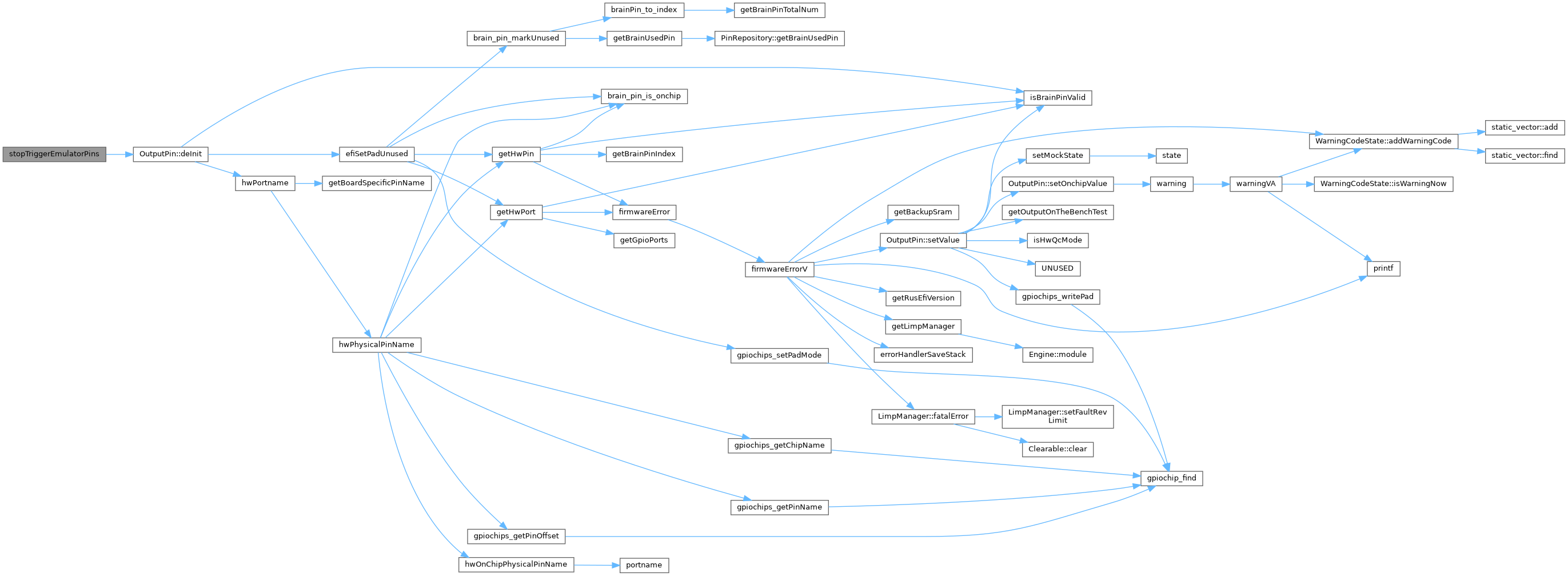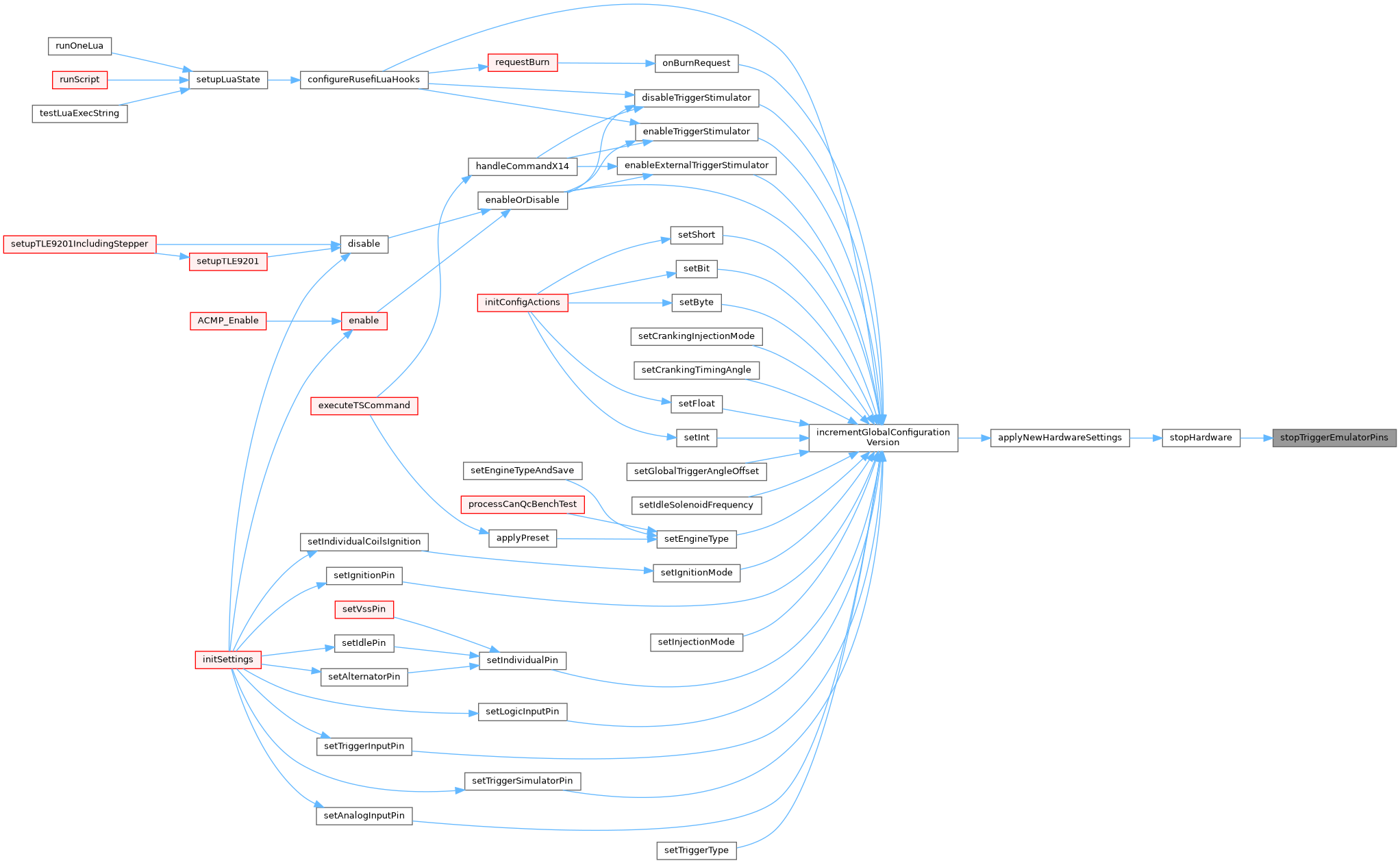Detailed Description
- Date
- Mar 3, 2014
Definition in file trigger_emulator_algo.h.
Data Structures | |
| class | TriggerEmulatorHelper |
Functions | |
| void | initTriggerEmulator () |
| void | startTriggerEmulatorPins () |
| void | stopTriggerEmulatorPins () |
| void | setTriggerEmulatorRPM (int value) |
| void | onConfigurationChangeRpmEmulatorCallback (engine_configuration_s *previousConfiguration) |
| void | enableTriggerStimulator (bool incGlobalConfiguration=true) |
| void | enableExternalTriggerStimulator () |
| void | disableTriggerStimulator () |
| int | getPreviousIndex (const int currentIndex, const int size) |
| bool | needEvent (const int currentIndex, const MultiChannelStateSequence &mcss, int channelIndex) |
Function Documentation
◆ disableTriggerStimulator()
| void disableTriggerStimulator | ( | ) |
Definition at line 222 of file trigger_emulator_algo.cpp.
Referenced by configureRusefiLuaHooks(), enableOrDisable(), and handleCommandX14().
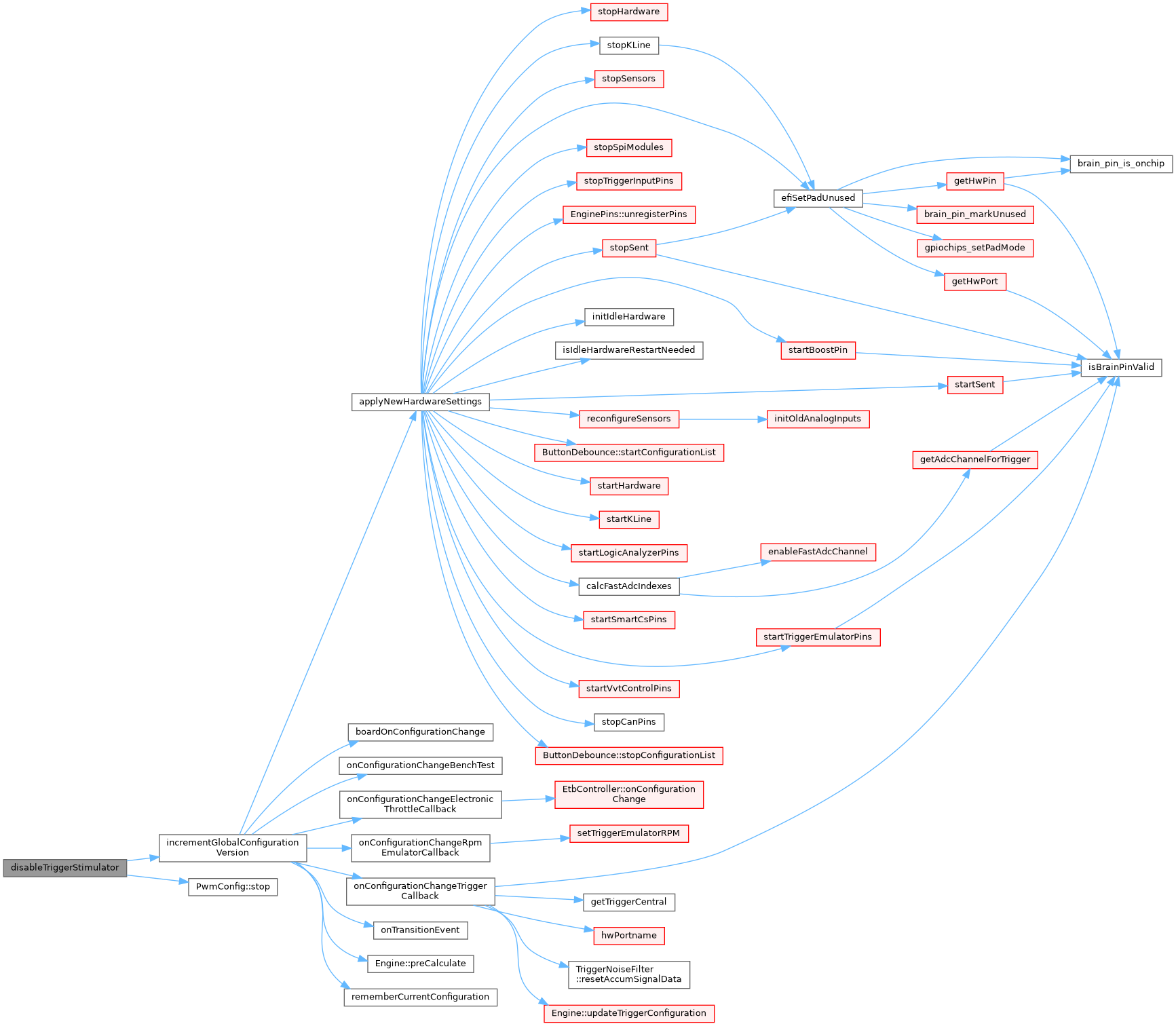

◆ enableExternalTriggerStimulator()
| void enableExternalTriggerStimulator | ( | ) |
Definition at line 216 of file trigger_emulator_algo.cpp.
Referenced by enableOrDisable(), and handleCommandX14().


◆ enableTriggerStimulator()
| void enableTriggerStimulator | ( | bool | incGlobalConfiguration = true | ) |
Definition at line 205 of file trigger_emulator_algo.cpp.
Referenced by configureRusefiLuaHooks(), enableOrDisable(), and handleCommandX14().
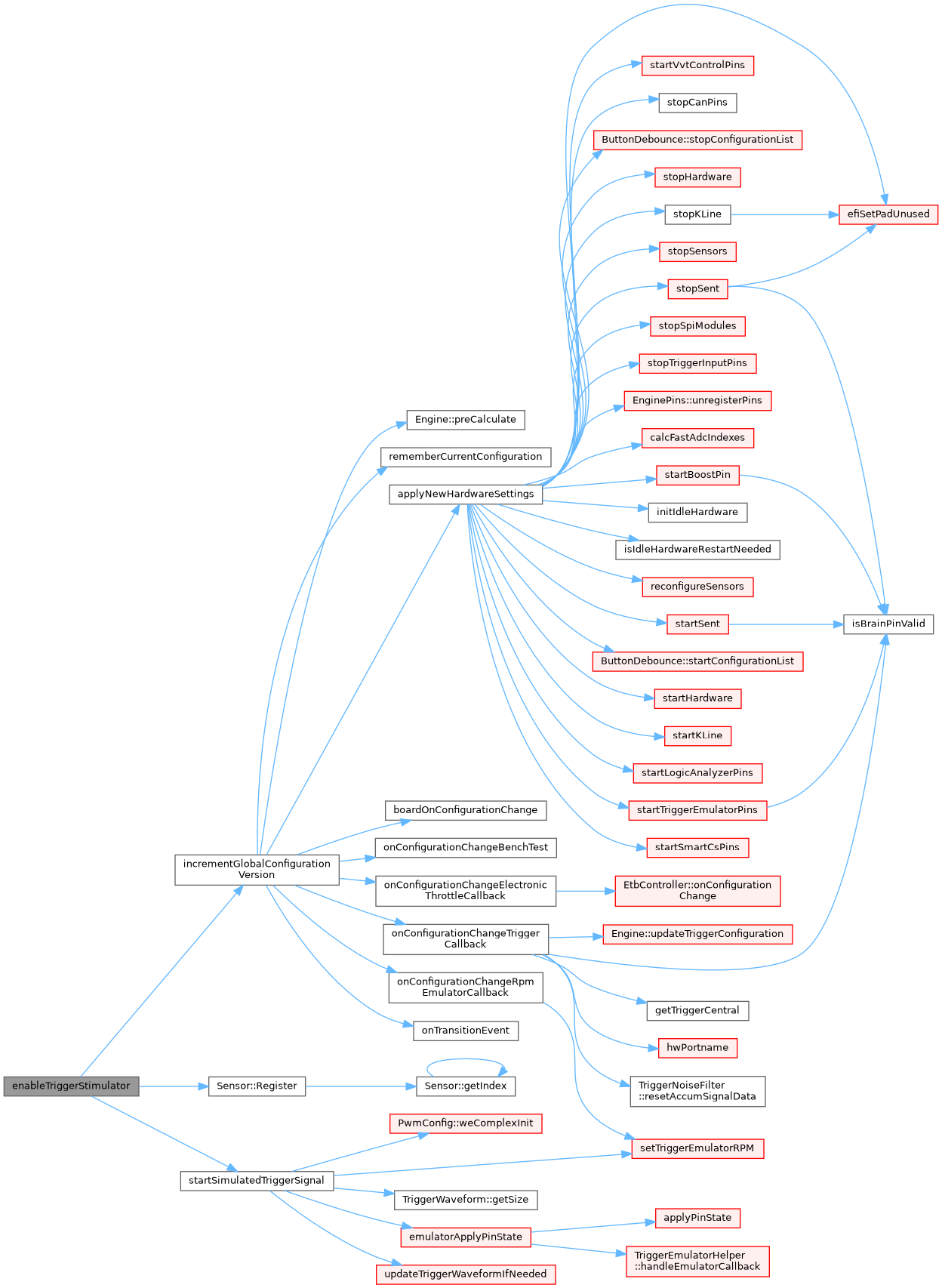
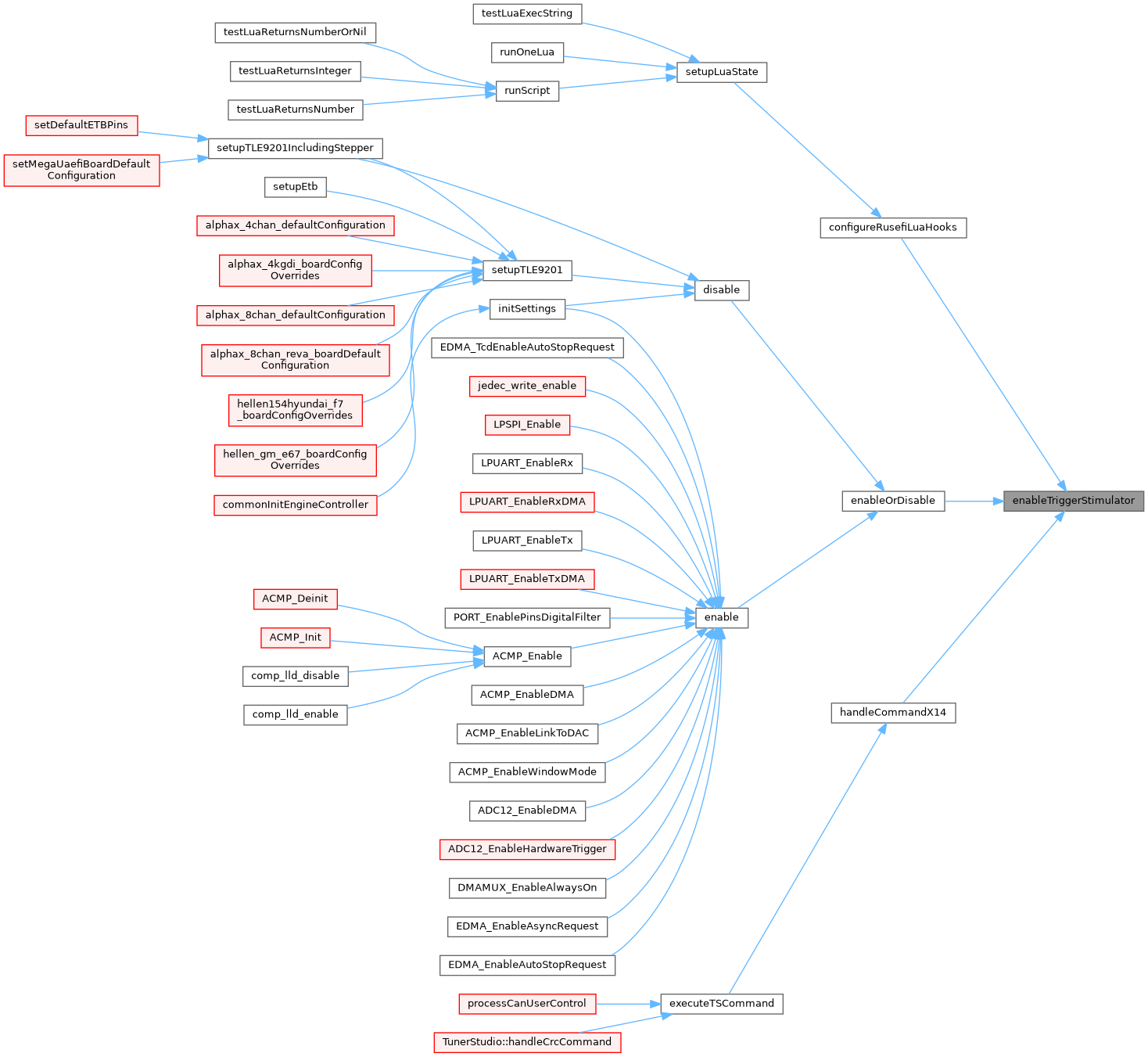
◆ getPreviousIndex()
| int getPreviousIndex | ( | const int | currentIndex, |
| const int | size | ||
| ) |
Definition at line 19 of file trigger_emulator_algo.cpp.
Referenced by TriggerStimulatorHelper::feedSimulatedEvent(), and needEvent().
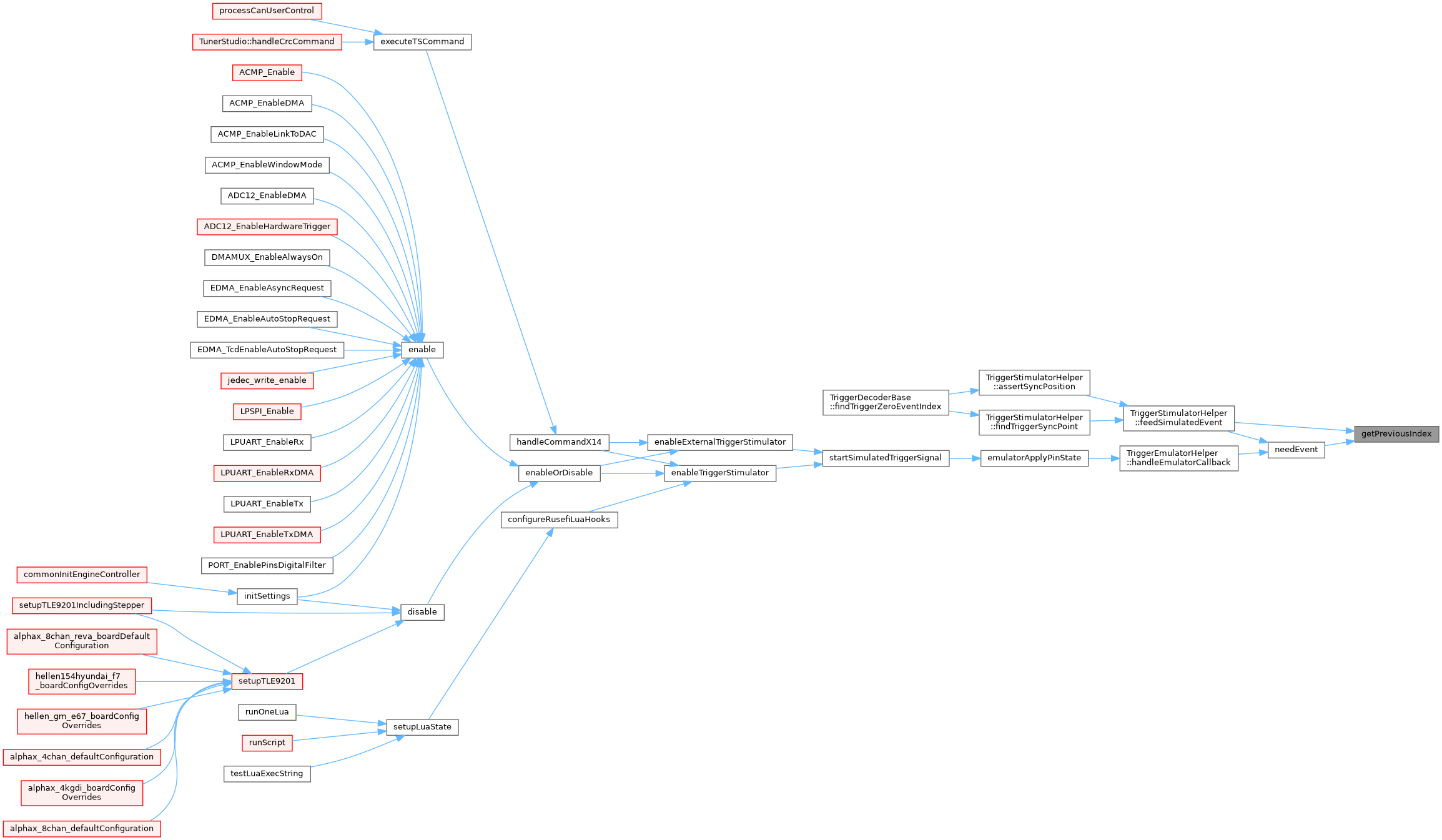
◆ initTriggerEmulator()
| void initTriggerEmulator | ( | ) |
Definition at line 239 of file trigger_emulator_algo.cpp.
Referenced by initEngineEmulator().
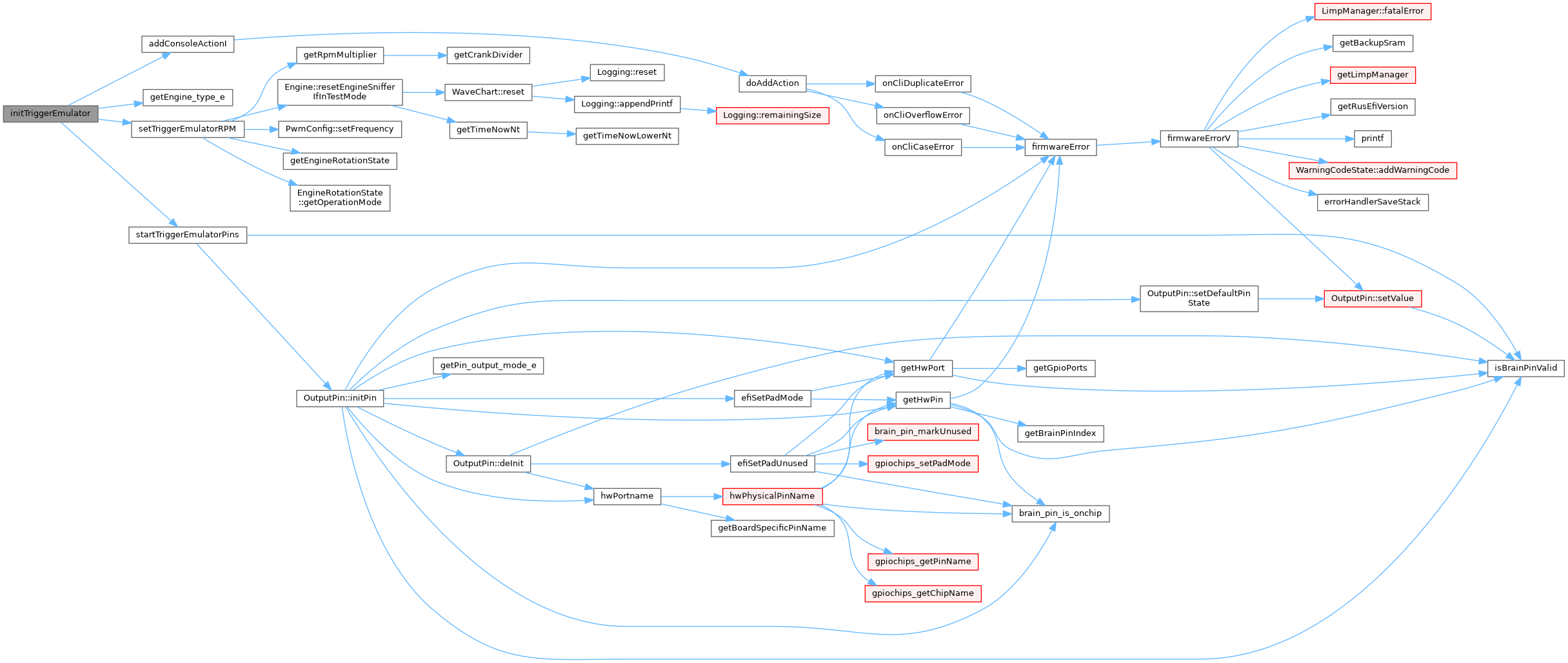

◆ needEvent()
| bool needEvent | ( | const int | currentIndex, |
| const MultiChannelStateSequence & | mcss, | ||
| int | channelIndex | ||
| ) |
Definition at line 23 of file trigger_emulator_algo.cpp.
Referenced by TriggerStimulatorHelper::feedSimulatedEvent(), and TriggerEmulatorHelper::handleEmulatorCallback().


◆ onConfigurationChangeRpmEmulatorCallback()
| void onConfigurationChangeRpmEmulatorCallback | ( | engine_configuration_s * | previousConfiguration | ) |
Definition at line 231 of file trigger_emulator_algo.cpp.
Referenced by incrementGlobalConfigurationVersion().


◆ setTriggerEmulatorRPM()
| void setTriggerEmulatorRPM | ( | int | value | ) |
All we need to do here is to change the periodMs togglePwmState() would see that the periodMs has changed and act accordingly
Definition at line 97 of file trigger_emulator_algo.cpp.
Referenced by configureRusefiLuaHooks(), initTriggerEmulator(), onConfigurationChangeRpmEmulatorCallback(), setValue(), and startSimulatedTriggerSignal().


◆ startTriggerEmulatorPins()
| void startTriggerEmulatorPins | ( | ) |
Definition at line 249 of file trigger_emulator_algo.cpp.
Referenced by applyNewHardwareSettings(), and initTriggerEmulator().
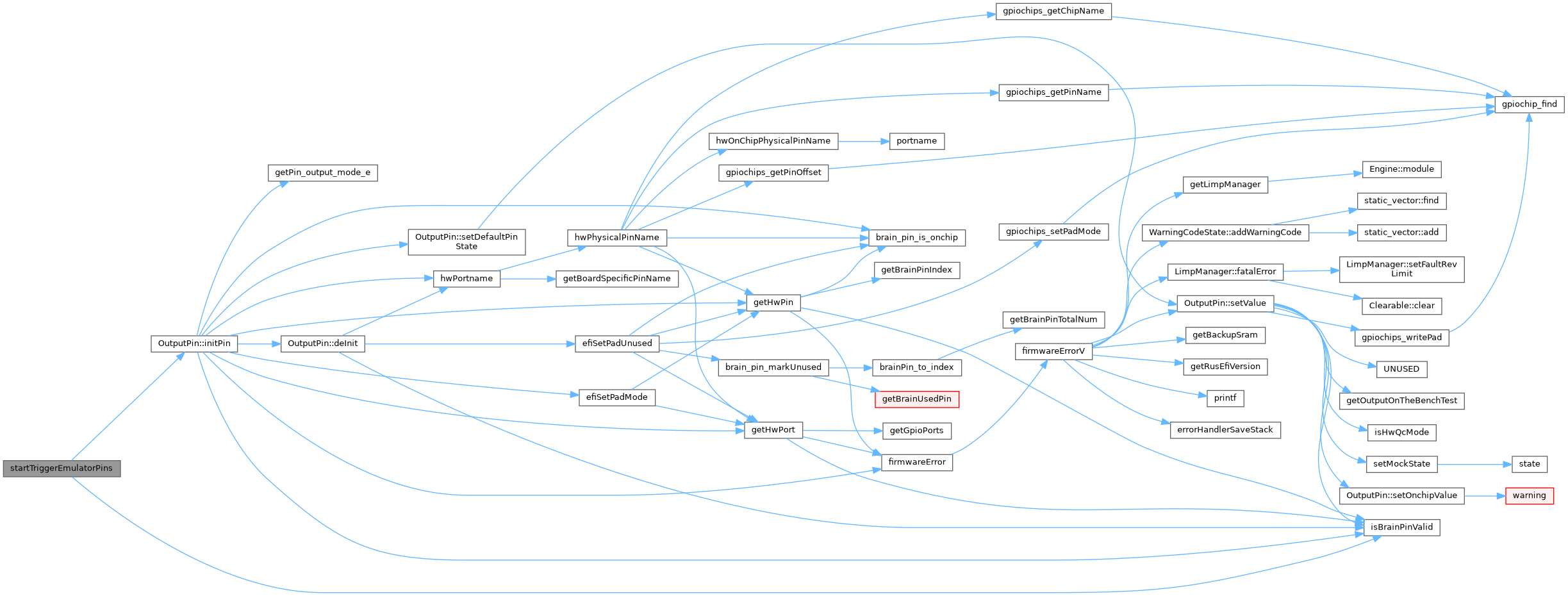
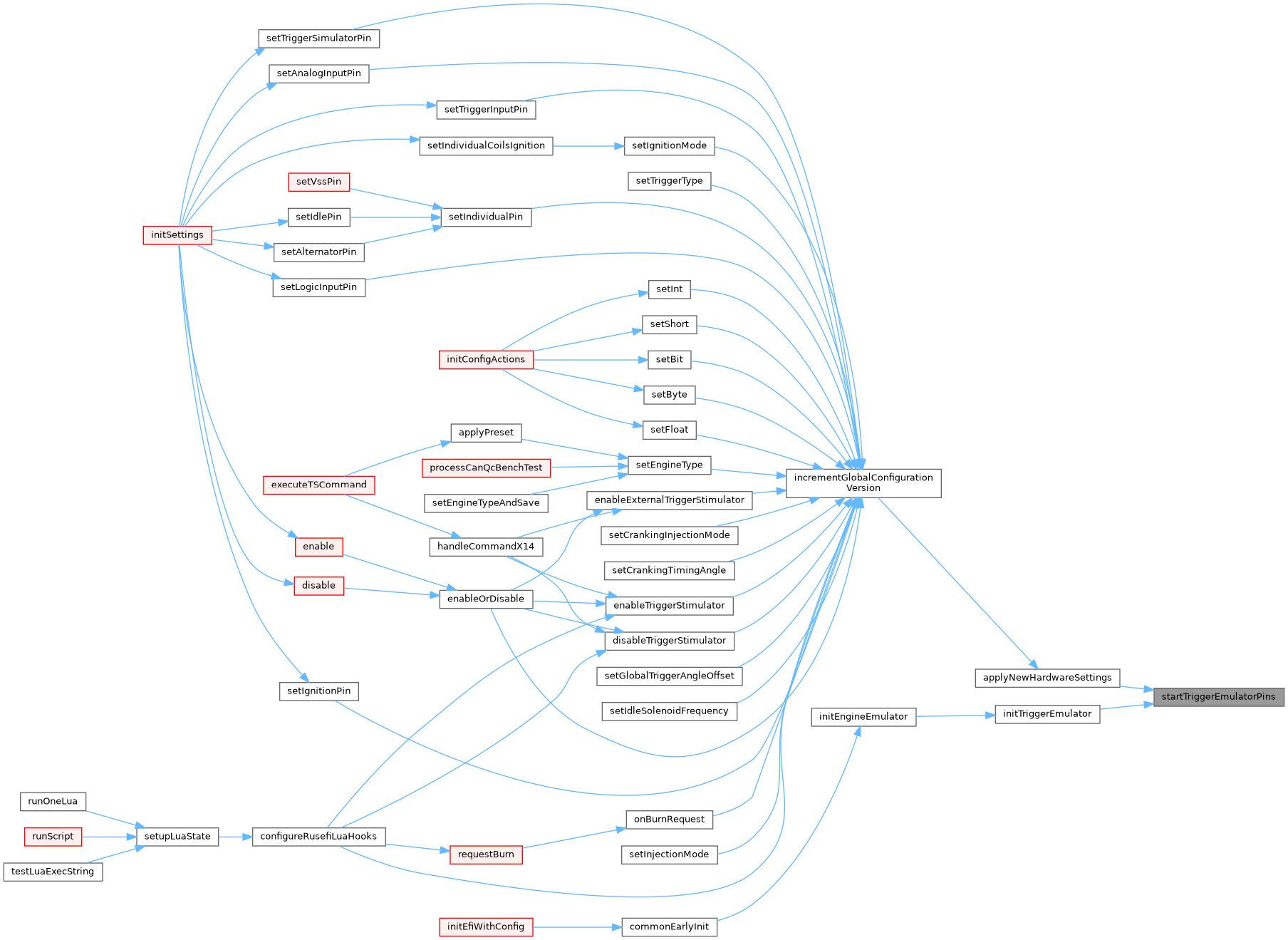
◆ stopTriggerEmulatorPins()
| void stopTriggerEmulatorPins | ( | ) |
Definition at line 284 of file trigger_emulator_algo.cpp.
Referenced by stopHardware().
